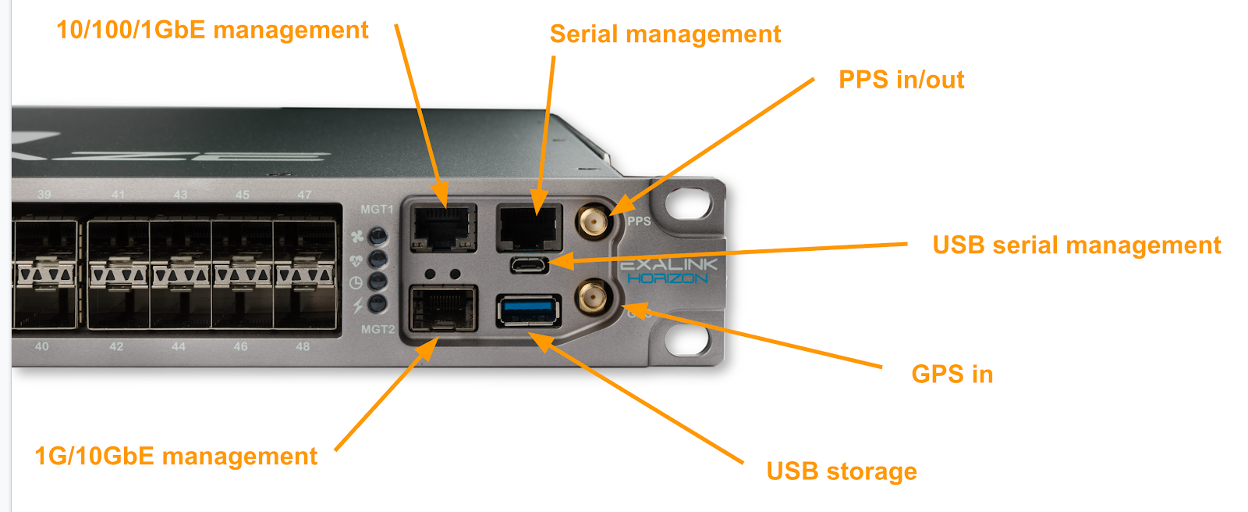Management Setup
The Cisco Nexus 3550-T Programmable Switch Platform features a console port, a Micro USB port, a 1Gb RJ45 port and a 10G SFP+ port, all of which can be used as management interfaces.
The factory default setting of the Nexus 3550-T has one user: admin defined with the password: admin
Refer to the image below for details on the connectors and indicators.

Console Port
The console port uses an industry standard RJ45 connector commonly used for connecting to network devices via a serial port.
The serial port parameters are 115200 8N1, that is 115200 baud, 8 data bits, no parity and 1 stop bit.
Micro USB Port
The Micro USB port may also be used as a management interface. Connecting a Micro USB cable will allow hosts to connect via this port as if they were connecting over serial.
Ethernet Management Interfaces
The RJ45 and SFP management interfaces are configurable on the Nexus 3550-T command line as management1 and management2 respectively.
By default, management1 will attempt a DHCP based configuration.
In order to have an Ethernet management interface's IP assigned by DHCP, issue the following command:
admin@NX-3550-T# configure interface management1 ip dhcp
Setting a static IP requires specifying the static IP to use, along with the netmask. You can also provide an optional gateway address, for example:
admin@NX-3550-T# configure interface management2 ip address 192.168.220.10/24 gateway 192.168.220.254
To view the current management interface settings, issue the show interface management1 command, for example:
admin@NX-3550-T# show interface management1
Management Interface "management1" is up
System Interface Name is enp8s0
MAC Address is 00:01:29:61:3d:40
IPv4 Settings:
IPv4 Configuration Method is "Static IP"
IPv4 Address is 192.168.220.10/24
IPv6 Settings:
IPv6 Configuration Method is "None"
IPv6 Address is fe80::201:29ff:fe61:3d40/64, link local
IPv4 Default Gateway is 192.168.220.254
You can optionally specify a name server, in order to resolve hostnames for management interface operations such as firmware updates. You can also issue multiple name servers, for example:
admin@NX-3550-T# configure ip name-server 192.168.220.15 192.168.228.16
You can view the list of currently defined name servers by issuing the following command:
admin@NX-3550-T# sh name-server
Name server : 192.168.220.15
Name server : 192.168.228.16
This page was last updated on Mar-23-2021.